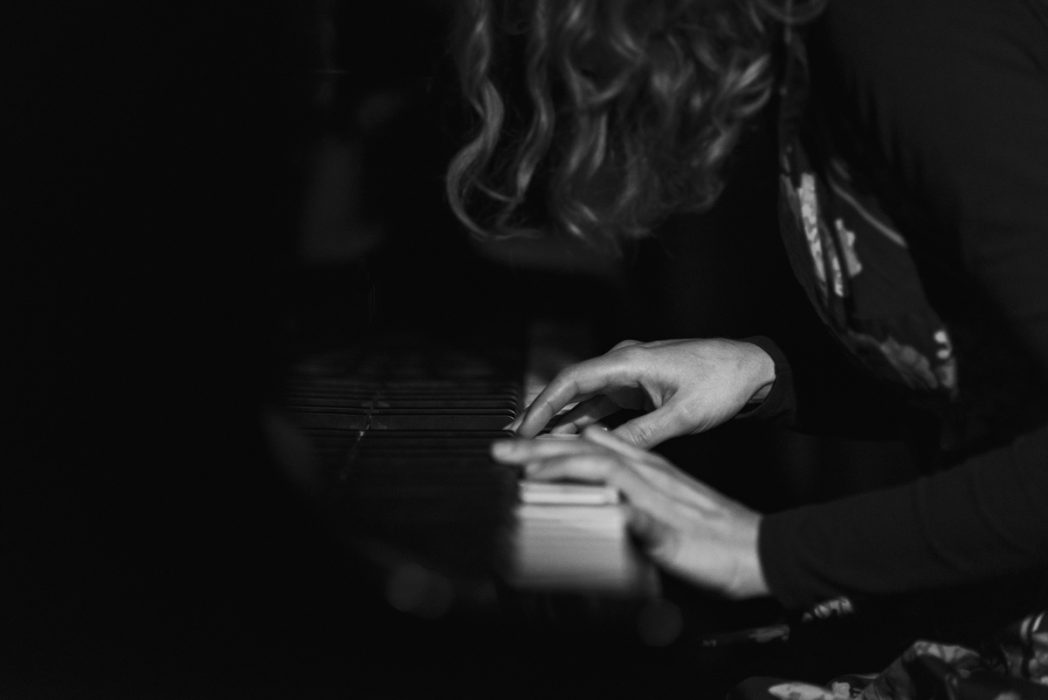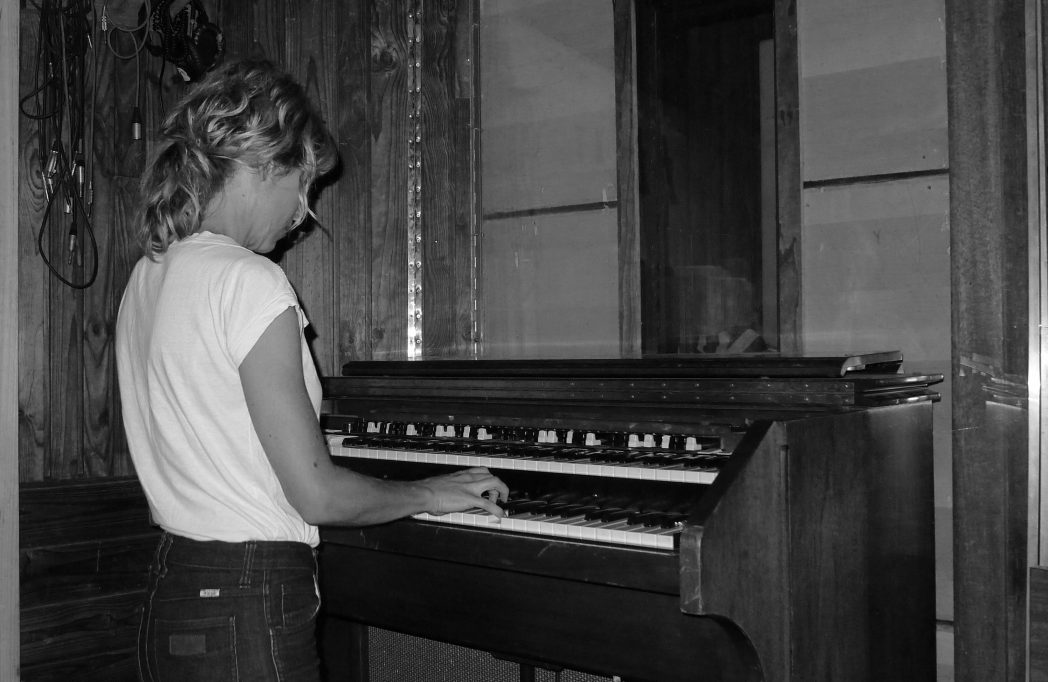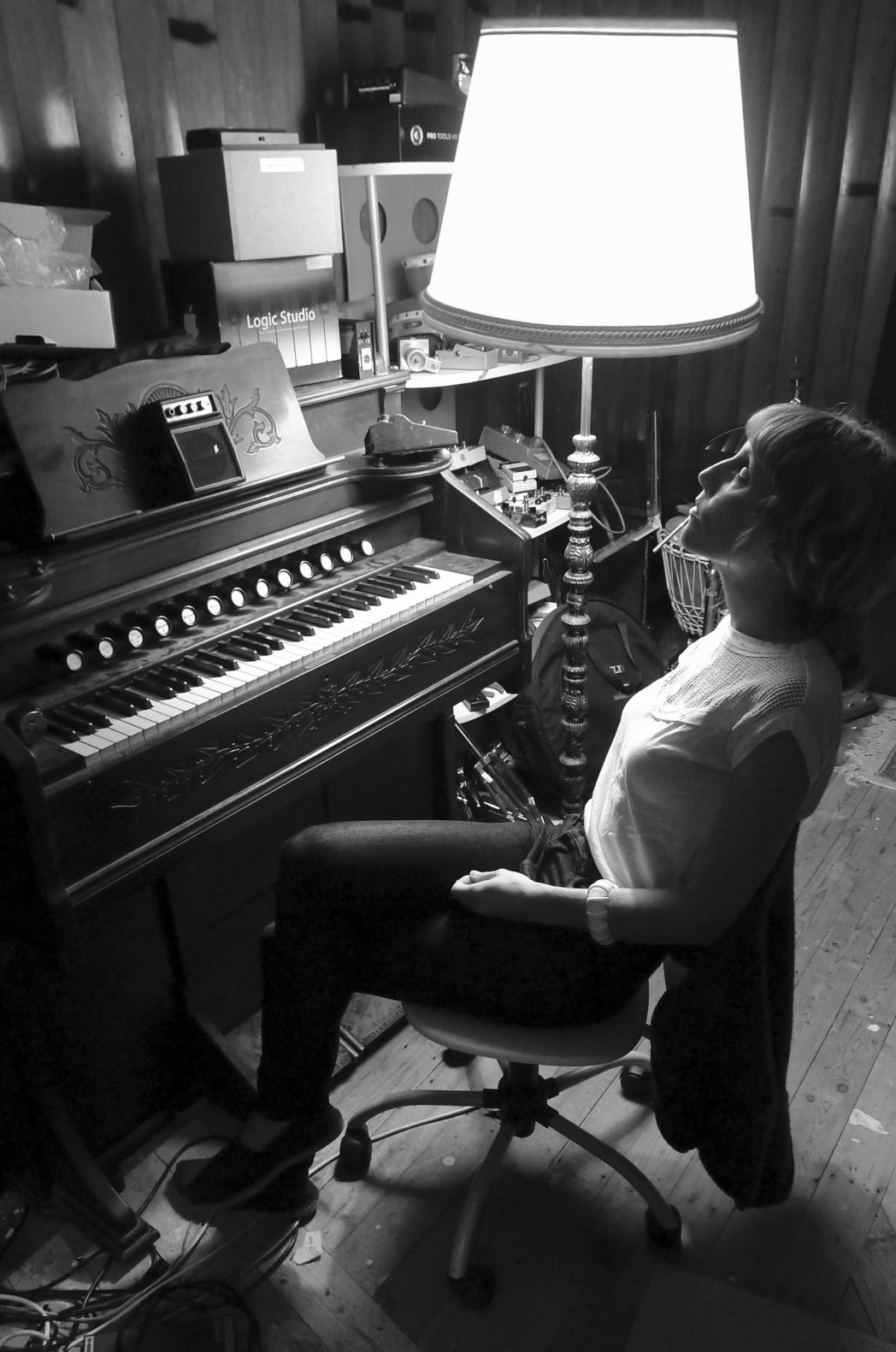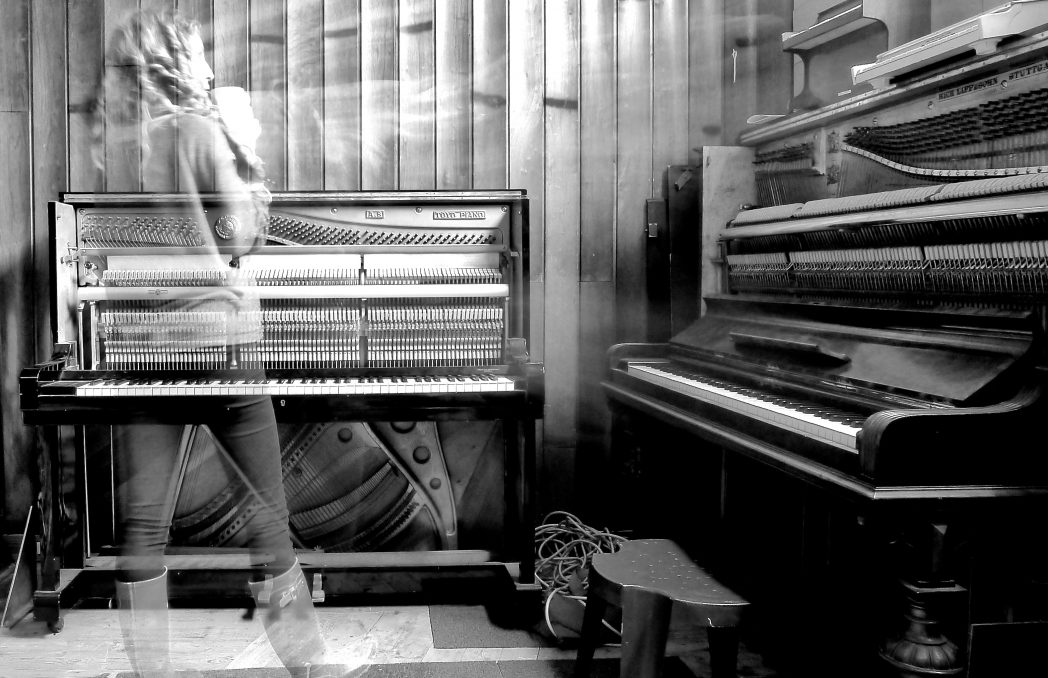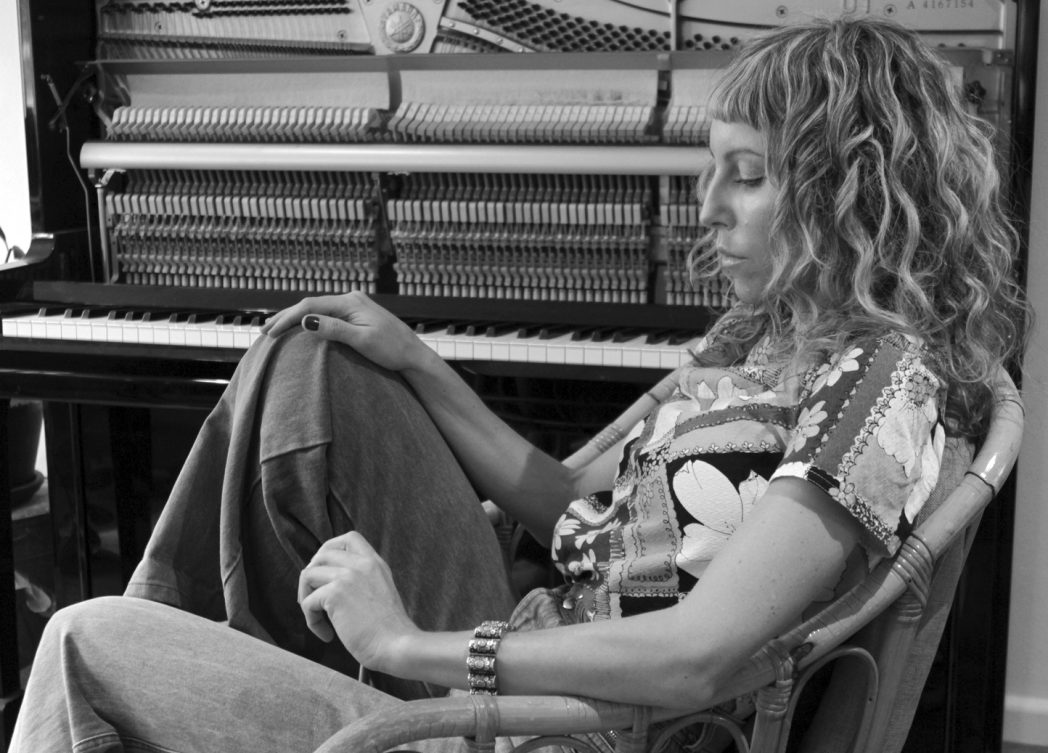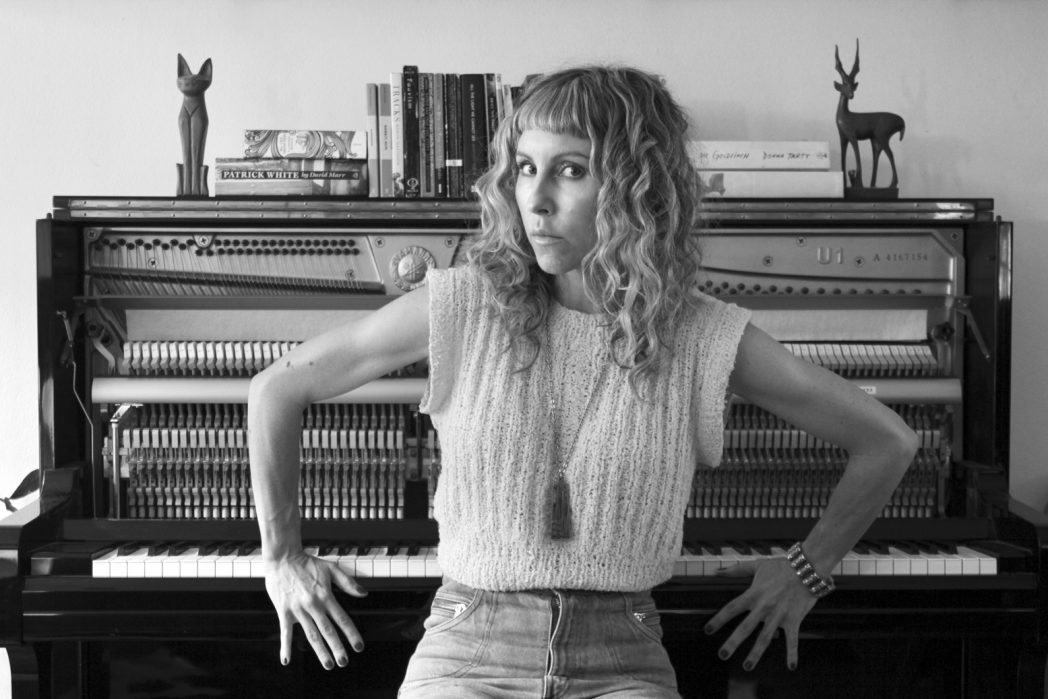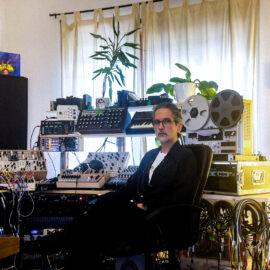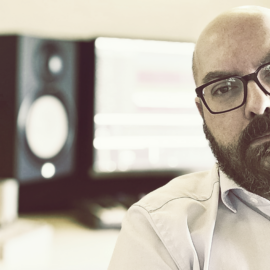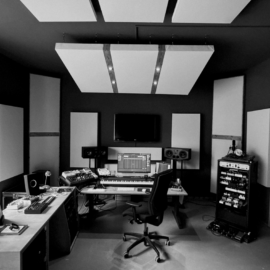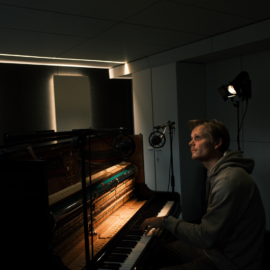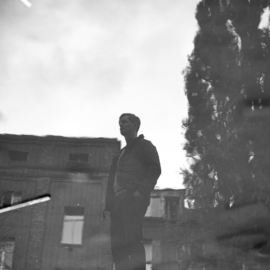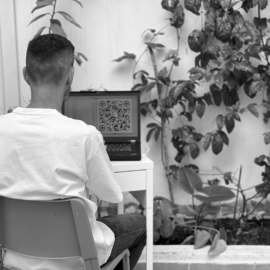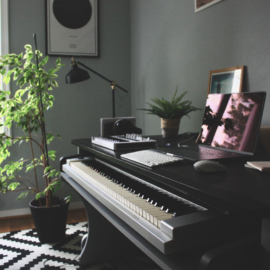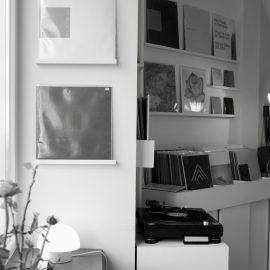Let’s start at the very beginning. Can you tell us how you got involved in composing, and what was your very first piece of gear?
We had a family piano which my father used for arranging and my mother said I was always climbing up onto the piano stool as a toddler to clang around on it. When I started tuition, my teacher encouraged my compositional side as this was my strength over site reading, and it helped sustain my interest and build confidence. She would give me a theme to work on each week which encouraged my creativity and imagination. I still remember some of the themes she gave me, and my mother has a recording of some of them on tape stored away somewhere. So I guess my very first piece of gear was the family piano and a tape recorder which I documented my somewhat childlike compositions on….
How many different studio iterations have you gone through, and what does your final setup look like right now?
Hardly any! I keep it pretty minimal as I work from home and then out of various studios. At home, I have a couple of keyboards and my piano. I use a couple of good quality pencil mics, audio interface and pro-tools or garage band and a lot of the time when I’m writing late at night over a few wines I simply use my StudioMini on my phone which has been a super simple and handy tool that had I not utilised I would have lost many initial ideas/ pieces I’ve written over the years.
Tell us about your favourite piece of hardware.
I don’t have any favourite piece of hardware. It depends on what equipment is in the studio I’m working in, but at home, I use my old school Yamaha P-120 a lot. It’s nothing exciting, and I’ve had it forever, but over the years it’s featured on all my albums as I like the sample sounds which I’ve then treated in the mixing process.
And what about the software that you use for production?
I’ve always used GarageBand from home, and I also dabble around with Ableton. I think there’s some who kind of scoff at Garage band, but that doesn’t worry me. A lot of musicians have made really great albums with GarageBand ie Julianna Barwick and more. I like its straight-up approach. I mostly work with Pro Tools in the studio. I couldn’t live without my Apogee Duet. I take it wherever I go. It’s super versatile, and I’ve never had any technical issues with it, which is great for me as I’m a very impatient problem solver!
Is there a particular piece of gear that you’re just dying to get your hands on and do you think one day you’ll have it?
Probably an old vintage organ, I used an old Lowrey Magic Genie organ on my album Night Sky and Wide Asleep. I love using these as drones, pads, or adding layers of colour texture to recordings in the background. I’ve played on and recorded with a few different kinds but haven’t the room for my own at present…
Can you please share some aspects of sound design in your work?
I’m very passionate about the human behind the instrument, so I mostly compose and create with real instrumentation and then often treat and play around with the sounds in the mixing process. I think when there’s a real beating heart behind what’s played with this style of music, there’s a form of emotion conveyed and never played the same way twice. Mixing to me is like recording all over again as well. It has a huge bearing on how things sound in the end as to where all the instrumentation levels sit and what you do with the sounds.
Any particular new techniques that you tried out for your new album?
Hmm, maybe. I’ve always had an element of me singing on my albums as another form of instrumentation here and there. I’m a sucker for the ethereal like layers and expanded on this by inviting a couple of beautiful soprano singers to join me for some parts on Scattered on the Wind. It’s the main feature in Part II of the opening track and I also really liked the way we sang the vocals on the piece ‘Orange Glow’. You could possibly think it was a sample, but we sang all the harmonies throughout the piece…
What does your live setup look like, and what do you bring with you when you travel for an extensive tour?
It kind of varies. When I’m not travelling overseas, my cellist Peter and violinist Jay will join me. A lot of the time it’s just been the piano and me when I’ve toured overseas. Other times I’ll add something into the mix. I’ve done a few shows with visuals which I love. My new album has a few other things going on as far as loops, samples, synths etc. so I created a live set through Ableton to set off with my MIDI foot controller for some of the pieces to add a little variation. I was taking this on the road in May, but alas we are all in lockdown!
What is the most important environmental aspect of your current workspace and what would be a particular element that you would improve on?
I’m very close to the beach so when I have cabin fever, or I just need some headspace I run down and throw myself into the ocean. It has a very calming and positive effect on my musical work ethic. However, because I work from home, I sometimes find it hard to separate myself from what I’m doing, and I get tired of setting up gear and can let things slide. I’m working on a bit of studio out away from home which makes it a more disciplined environment without as many distractions perhaps…
What can you tell us about your overall process of composition? How are the ideas born, where do they mature, and when do they finally see the light?
I think it pretty much works in three stages for me. The first stage is the most cathartic, where I let my subconscious do the work. It’s all about letting the pieces evolve on their own. When I’m in the zone, I don’t like to be distracted by recording gear so I’ll often just record a compositional idea on my phone. The second stage I might be on a plane, going for a walk, laying in bed or whatever and I’ll get a recurring melody swarm around in my head for other instrumentation like string parts or the like, and that’s where the full writing process begins. I start to demo, write and build from there and I’d say this is where the personality of the pieces start to unfold. The Third stage is arranging/planning for the studio, which is the area I have to be the most disciplined in because I don’t really enjoy this process. I find it a little more challenging. I’m not really mathematically-minded and just like to creatively delve in which I’ve mostly done in the past and still tend to however I’ve just found from experience for me it kind of pays to be organised when you’re working with various people in the studio and then often allows clearer thinking and a bit of extra time and headspace to be creatively spontaneous.
After the piece is complete, how do you audition the results? What are your reactions to hearing your music in a different context, setting, or a sound system?
When a project is finished, I like to step away from it for a while and give it some time before I listen to it again. You can get emotionally tangled up in it so it’s easy to get bogged down and become very nitpicky about things that you may be more forgiving with later on. Things don’t always turn out the way you hear them in your head. So I find being away from it gives you a fresh set of ears and perspective. It’s very confusing listening on various sound systems, so you really need to coax yourself into trusting the overall essence and feeling the pieces convey as a whole and let go; otherwise, you go crazy and would never release anything!
Do you ever procrastinate? If so, what do you usually find yourself doing during those times?
I would say I’m pretty self-motivated and focused once I get going. I do find I put things off when I’m trying to get started, so I’ll find a way to put it off by organising things around the place either by doing a load of washing or scrubbing the bathroom, haha. I also often let baking get in the way which isn’t such a bad thing right! There’s always morning and afternoon tea going on at my place!
What gets you inspired?
Definitely alone time and being out in natural open spaces. What I’m reading and watching will often have an emotional impact on my thinking too.
And finally, what are your thoughts on the state of “electronic music” today?
I love electronic music. I listen to a lot of repetitive ambient electronica late at night. I find it really hypnotic. It’s so broad these days with the expansion of technology, and it crosses over into just about every genre, which is great.
